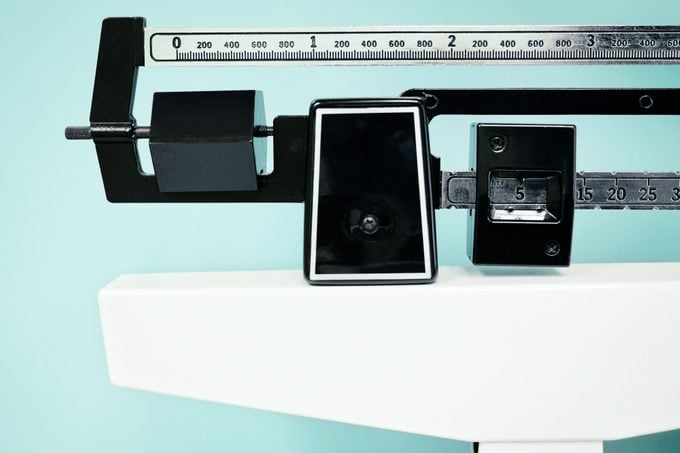Here’s Why Obesity Raises Breast Cancer Risk, According to Science
Updated: Jan. 07, 2020
Could keeping an eye on the scale help lessen your chances of breast cancer?
 Experts have long known that obesity, along with smoking, lack of activity, and other factors can contribute to an increased risk of cancer, but a study sheds light on how one of these specifically relates to breast cancer. Based on their findings, The Ohio State University Comprehensive Cancer Center – Arthur G. James Cancer Hospital and Richard J. Solove Research Institute (OSUCCC – James) are one step closer to understanding how obesity can influence or increase one’s risk for breast cancer. (Find out other things that increase your risk of cancer.)
Experts have long known that obesity, along with smoking, lack of activity, and other factors can contribute to an increased risk of cancer, but a study sheds light on how one of these specifically relates to breast cancer. Based on their findings, The Ohio State University Comprehensive Cancer Center – Arthur G. James Cancer Hospital and Richard J. Solove Research Institute (OSUCCC – James) are one step closer to understanding how obesity can influence or increase one’s risk for breast cancer. (Find out other things that increase your risk of cancer.)
Their study, which was presented at an annual meeting of the American Association for Cancer Research in 2017, provides evidence that obesity can alter the genes involved in our body’s inflammatory response, hereditary disorders, and other immunological diseases. The team, made of geneticists, cell biologists, medical oncologists, and epidemiologists, analyzed the gene expression in tissue samples collected from 121 women with no history of breast cancer. All women participating in the study were undergoing breast reduction and 51 participants were considered clinically obese.
For the study, the team closely examined the obesity and inflammation response, finding 308 genes important in the process. Of the 308 genes discovered, 240 were more likely to have sporadic mutations and low gene expression in obese women while 68 genes were shown to have a decreased risk for gene mutations and high gene expression. All of the participants’ affected genes were involved in diseases and disorders for inflammatory response, hereditary disorders, and immunological disease.
“Different types of breast cancer could be affected differently by obesity, a more robust understanding of how obesity triggers inflammatory cancer pathways and increases breast cancer risk could help us develop better chemoprevention strategies or early prevention strategies in women at increased risk based on their weight,” said study author Peter Shields, MD, deputy director of the OSUCCC – James, in a news release.
Along with watching your weight, there are additional ways women and men can decrease their chances of breast cancer, including exercising and cutting back on the amount of alcohol you drink. While researchers hope future studies can examine the genes identified by this study in participants that develop breast cancer later, here are 50 everyday habits that help prevent breast cancer.
